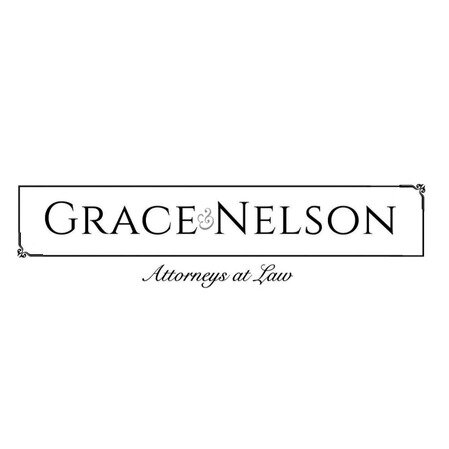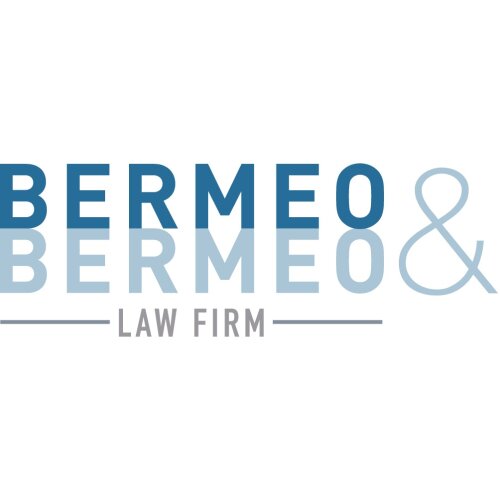Best Mining Law Lawyers in Ecuador
Share your needs with us, get contacted by law firms.
Free. Takes 2 min.
Or refine your search by selecting a city:
List of the best lawyers in Ecuador
About Mining Law in Ecuador
Mining Law in Ecuador establishes the legal framework for the exploration, exploitation, commercialization, and closure of mining activities within the country. This sector is governed primarily by the Mining Law (Ley de Minería) and its regulations, which set out the rights and obligations for individuals and companies interested in mineral resources. The law aims to ensure responsible mining practices, balancing economic development with social and environmental protection. Ecuador is known for its rich mineral reserves, and mining can be both an opportunity and a challenge for investors, communities, and the state. Anyone considering involvement in mining in Ecuador should understand the legal landscape to avoid complications and ensure compliance.
Why You May Need a Lawyer
There are several situations where legal advice is essential in the field of Mining Law in Ecuador. Common scenarios include:
- Applying for a mining concession and navigating application processes with the Ministry of Energy and Mines.
- Interpreting the complex regulatory requirements regarding environmental permits and social licenses.
- Negotiating contracts and joint ventures with local partners or foreign investors.
- Resolving disputes over land use, mining rights, or royalties with communities or government agencies.
- Handling taxation, customs, and export regulations applicable to mineral products.
- Addressing compliance with environmental impact assessments and closure obligations.
- Defending against administrative or criminal charges related to alleged infractions in mining operations.
A knowledgeable lawyer can help you safeguard your interests, ensure compliance with regulations, and minimize risks.
Local Laws Overview
Ecuador’s mining sector is primarily regulated by the Mining Law, created in 2009, along with its subsequent reforms and regulatory decrees. Key elements include:
- State Ownership: All mineral resources belong to the State. Private individuals or companies may obtain concessions to explore and exploit these resources.
- Types of Concessions: The law distinguishes between artisanal, small, medium, and large-scale mining. Each category comes with different permit requirements and regulatory obligations.
- Application Process: Mining concessions are granted through a public bidding process led by the Ministry of Energy and Mines. Applicants must meet legal, technical, and financial qualifications.
- Environmental and Social Requirements: Mining projects must obtain environmental licenses, conduct consultations with affected communities, and submit environmental management plans.
- Royalties and Taxes: The law establishes payment of royalties, windfall taxes, and other fiscal contributions. The rates vary according to the scale and profitability of mining activities.
- Inspection and Sanctions: Regulatory bodies oversee compliance and may impose sanctions, including suspension or revocation of concessions for violations.
Recent years have seen regulatory reforms aimed at increasing transparency, protecting the environment, and fostering responsible investment.
Frequently Asked Questions
What types of mineral resources are covered under Ecuadorian Mining Law?
Ecuadorian Mining Law covers metallic minerals like gold, silver, copper, and non-metallic resources such as limestone, clay, and construction materials.
Who can apply for a mining concession in Ecuador?
Individuals or legal entities, both national and foreign, can apply for mining concessions if they meet legal, financial, and technical criteria.
How much does it cost to obtain a mining concession?
Costs include application fees, annual concession fees, and social or environmental investments. The exact amounts vary by concession type and mining scale.
Are there special requirements for foreign companies?
Foreign companies must register locally and comply with Ecuador’s investment, tax, and labor laws. They may also need to partner with local entities for certain projects.
Do mining activities require an environmental license?
Yes. All mining projects must obtain an environmental license from the Ministry of Environment and Water before commencing operations and must adhere to strict environmental standards.
What is prior consultation with communities?
Prior consultation is a process that involves informing and consulting affected local and indigenous communities before granting mining concessions, as required by Ecuadorian law and international agreements.
What taxes and royalties must miners pay?
Miners must pay royalties to the state, income tax, and, in some cases, a windfall tax if profits exceed predetermined levels. The specific rates depend on project scale and profitability.
How are disputes in mining resolved?
Disputes may be addressed through administrative procedures with regulatory bodies, local or international arbitration, or Ecuadorian courts, depending on the nature of the conflict and contractual provisions.
Are there restrictions on land use for mining?
Yes. Mining is prohibited in protected areas, national parks, and certain water sources. Local zoning laws and land-use regulations must be observed.
What are the main risks of not complying with mining regulations?
Non-compliance can result in fines, suspension, or revocation of concessions, criminal prosecution, civil liability, and reputational damage.
Additional Resources
If you need more information or official guidance about Mining Law in Ecuador, consider the following resources:
- Ministry of Energy and Mines (Ministerio de Energía y Minas): The primary authority responsible for regulating mining activities and granting concessions.
- Ministry of Environment and Water (Ministerio del Ambiente y Agua): Issues environmental licenses and oversees environmental compliance.
- Chamber of Mining of Ecuador (Cámara de Minería del Ecuador): Industry association providing updated information and support for mining companies.
- Local bar associations and private law firms: Offer legal advice and representation for individuals and companies involved in mining activities.
Next Steps
If you are considering mining activities or face legal questions relating to Mining Law in Ecuador, the following steps are recommended:
- Research the type of mining activity you wish to undertake and its legal requirements.
- Gather relevant documents about the property or area where mining is intended.
- Consult with a qualified Ecuadorian lawyer who specializes in Mining Law to assess your legal position, risks, and opportunities.
- Request a detailed review of your plans, contracts, and compliance obligations.
- Develop a strategy with your legal advisor for securing permits, community consultation, and compliance with environmental standards.
- Stay informed about regulatory changes that could impact your mining project.
- Regularly review your compliance with all applicable laws throughout the project lifecycle.
A professional legal advisor can help you navigate Ecuador’s complex and evolving mining regulations, ensuring your rights are protected and your obligations fulfilled.
Lawzana helps you find the best lawyers and law firms in Ecuador through a curated and pre-screened list of qualified legal professionals. Our platform offers rankings and detailed profiles of attorneys and law firms, allowing you to compare based on practice areas, including Mining Law, experience, and client feedback.
Each profile includes a description of the firm's areas of practice, client reviews, team members and partners, year of establishment, spoken languages, office locations, contact information, social media presence, and any published articles or resources. Most firms on our platform speak English and are experienced in both local and international legal matters.
Get a quote from top-rated law firms in Ecuador — quickly, securely, and without unnecessary hassle.
Disclaimer:
The information provided on this page is for general informational purposes only and does not constitute legal advice. While we strive to ensure the accuracy and relevance of the content, legal information may change over time, and interpretations of the law can vary. You should always consult with a qualified legal professional for advice specific to your situation.
We disclaim all liability for actions taken or not taken based on the content of this page. If you believe any information is incorrect or outdated, please contact us, and we will review and update it where appropriate.
Browse mining law law firms by city in Ecuador
Refine your search by selecting a city.















